Closing the SDG Gap: the need for public/private collaboration
Authors: Bruno Besek; Dirk Meuleman, CFA, CAIA; Sophie Robé, CFA, PhD
9 min read
Phenix Capital Jun 1, 2018 11:17:33 AM
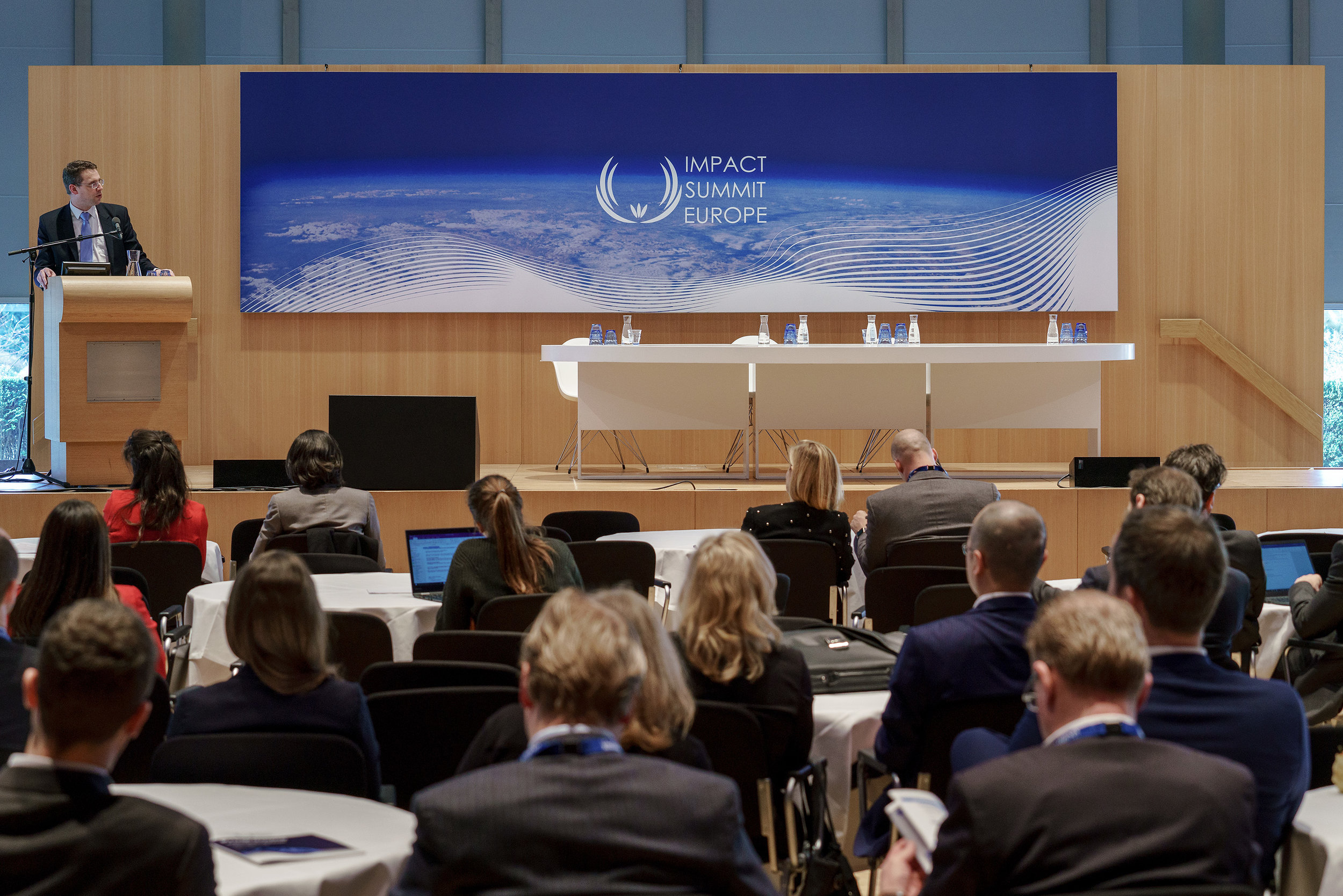
Amsterdam, June 1, 2018: The 4th Annual Impact Summit Europe, held in The Hague in March, was purposely titled Crossing the Rubicon to reflect taking the discussion from the ‘what’ and ‘why’ to the ‘how to’ of impact investing. It was apt that at the two-day event Global Impact Investing Network’s (GIIN) decided to launch The Roadmap for the Future of Impact Investing, Reshaping the Financial Markets.
What if solving environmental and social development could earn us a return? Investing would suddenly have a purpose that is greater than just making money
The day was opened by a powerful film made by Utah-based story agency Issimo, titled Think a New Thought. “There’s this notion that we’ve had stuck in our heads for so long - that the invisible hand of capitalism had to be a selfish hand, a hand without sympathy - that it simply wouldn’t work any other way. But what if that were wrong? What if that’s not true, and never has been?” the narrator said.
“People say a business’ purpose is to make money, but it’s not: a business’ purpose is to fill a need for the market, and they get to thrive, as a by-product of how well they can do that,” the voice continued.
Sophie Robé, founder of Phenix Capital, opened the event by asking the audience, “Let’s think about this video’s central message ‘the business purpose is to fill a need for the market and the byproduct is making money’. What if the need is ending poverty, or climate change, or inequality? What if solving environmental and social development could earn us a return? Investing would suddenly have a purpose that is greater than just making money”.
To this end, the 2018 event, which was co-hosted by City of The Hague and Phenix Capital, welcomed more than 70 speakers, experienced impact and sustainable development goals investors willing to share their know-how with more than 300 delegates about how to invest assets using the Sustainable Development Goals (SDGs) as a framework.
In 2015, 193 nations signed the UN’s Sustainable Development Goals to end poverty, protect the planet and ensure prosperity for all. “These goals that include climate change, inequality, global inequality, poverty, represent a significant macro and micro risk for your portfolios, but at the same time, these issues also represent huge opportunities to generate competitive financial returns,” said Sophie Robé.
The Sustainable Development Goals are a universal framework for measuring, monitoring and articulating the impact of institutional investments. To achieve the global goals by 2030, the role of the private sector will be instrumental, given the financing gap of $5 to $7 trillion per annum.
Phenix Capital’s mission is to catalyse and mobilise $800 billion over the next seven years for the SDGs by moving the discussion from ESG to impact investing. This year the Impact Summit Europe was themed around Crossing the Rubicon, taken from 49BC when Julius Caesar crossed the Rubicon River and started the Roman civil war that led Caesar to become a ruler for life and that was Imperial Rome as we know became a reality.
The idea is that by mobilizing the investment assets impact investing will change investing and the world as we currently know it. “Over the next two days, there are more than 100 asset owners and institutional investors in this room who have the discretion of over nearly $11 trillion. We don’t think that it is about committing 100% of your assets into impact, but what if all of you were to put 5% of your assets under management to work using the SDGs, we would already catalyse and mobilise $500 billion,” said Sophie Robé.
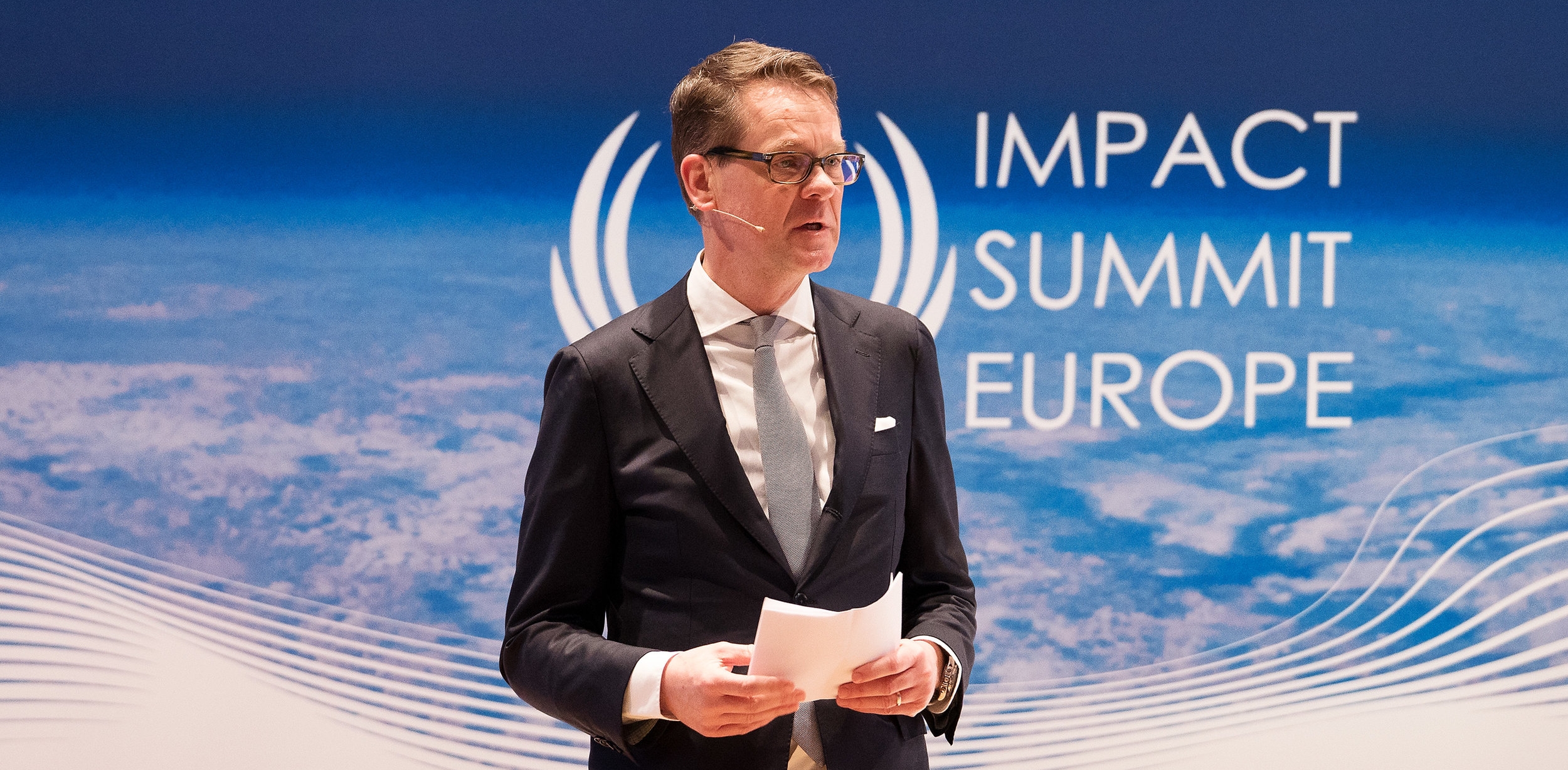
Gerald Gartigny | CIO & member of the board of MN
To a packed room, Gerald Gartigny, chief investment officer and member of the board of MN, which manages more than €125 billion in assets for two million beneficiaries, gave a powerful opening keynote charting MN’s journey 10 years ago from ESG negative exclusion to today’s SDG-aligned focus, suggesting ways the investment community could work together to achieve the SDGs by 2030.
The keynotes by the event’s other partners helped to take the impact investing discussion to the next level. Amit Bouri, chief executive officer of the Global Impact Investing Network (GIIN) talked about the The Roadmap for the Future of Impact Investing, Reshaping the Financial Markets and concluded that to achieve the impact that is needed, impact investing as it stands today has to change. “We need to think beyond impact investing, so we can influence all of investing. That is the future of impact investing and that is the future we are building today,” The GIIN’s Amit Bouri concluded in his speech.
One big challenge facing the impact investing movement is definition. Responsible investing is a broad spectrum that ranges from ESG right thought to philanthropy. In this keynote, Graeme Griffiths, director Principles for Responsible Investment, discussed the the evolution of responsible investment and talked about the PRI's own journey and the drivers that are influencing the industry’s future direction.
At the end of the second day, Hans Peter Lankes, vice president, Economics and Private Sector Development at the IFC tied together the two days highlighting that impact investing is more than aligning money with the goals; it is also more than just a commercial calculation of the opportunities and risks to the global economy; it is now an ethical obligation as four out of five millennials want both financial and social impact returns on their investments.
>
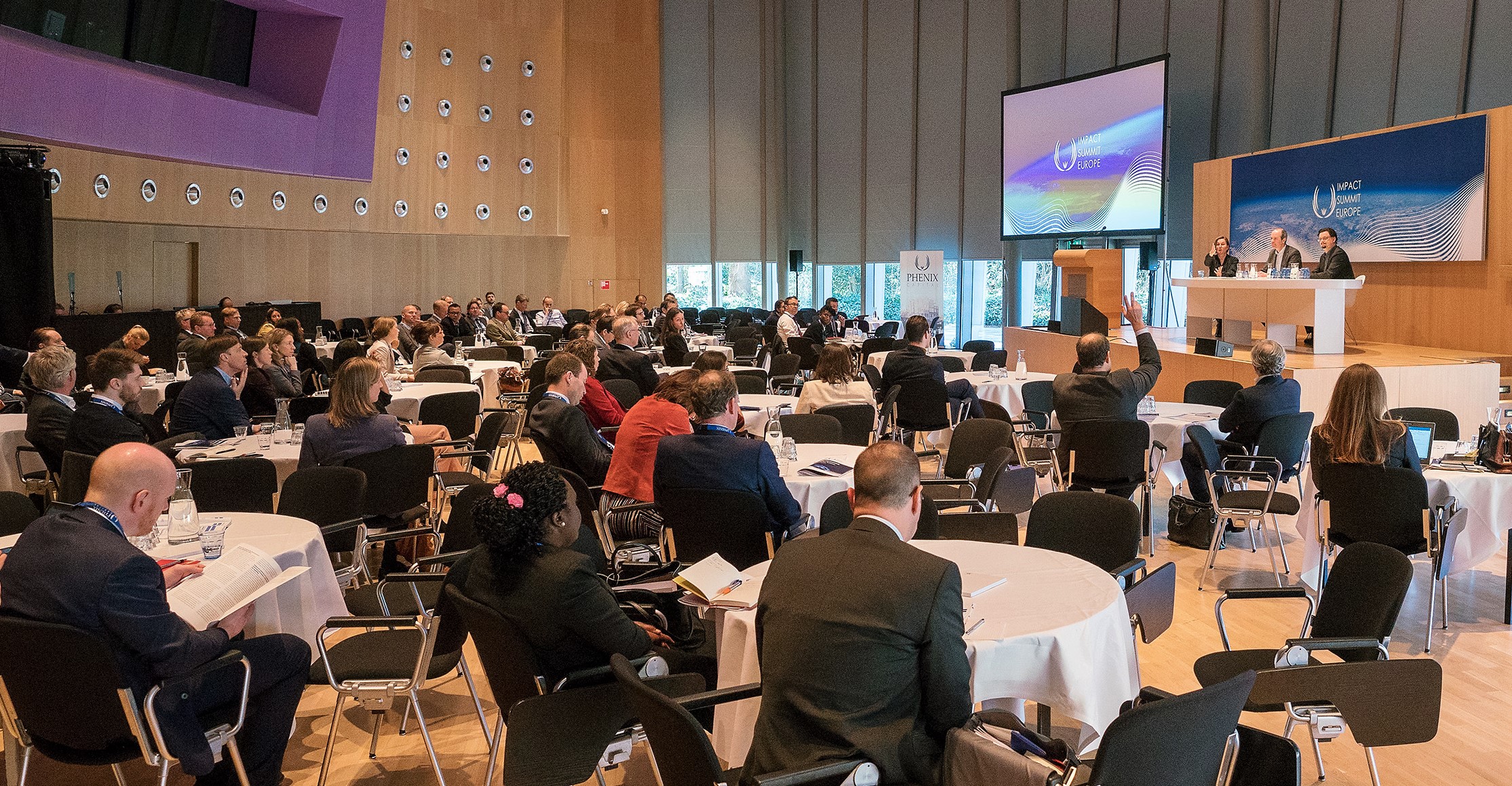
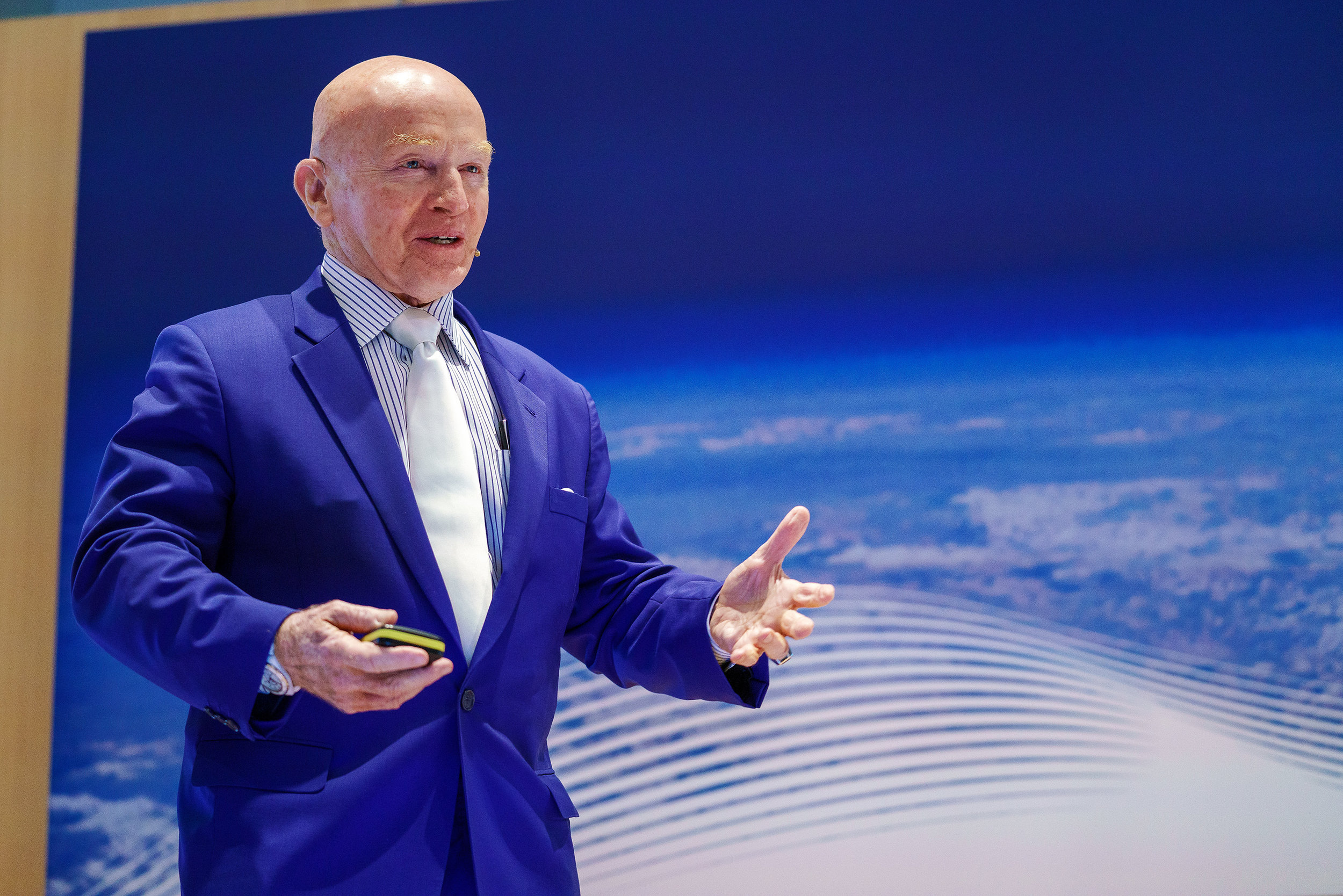
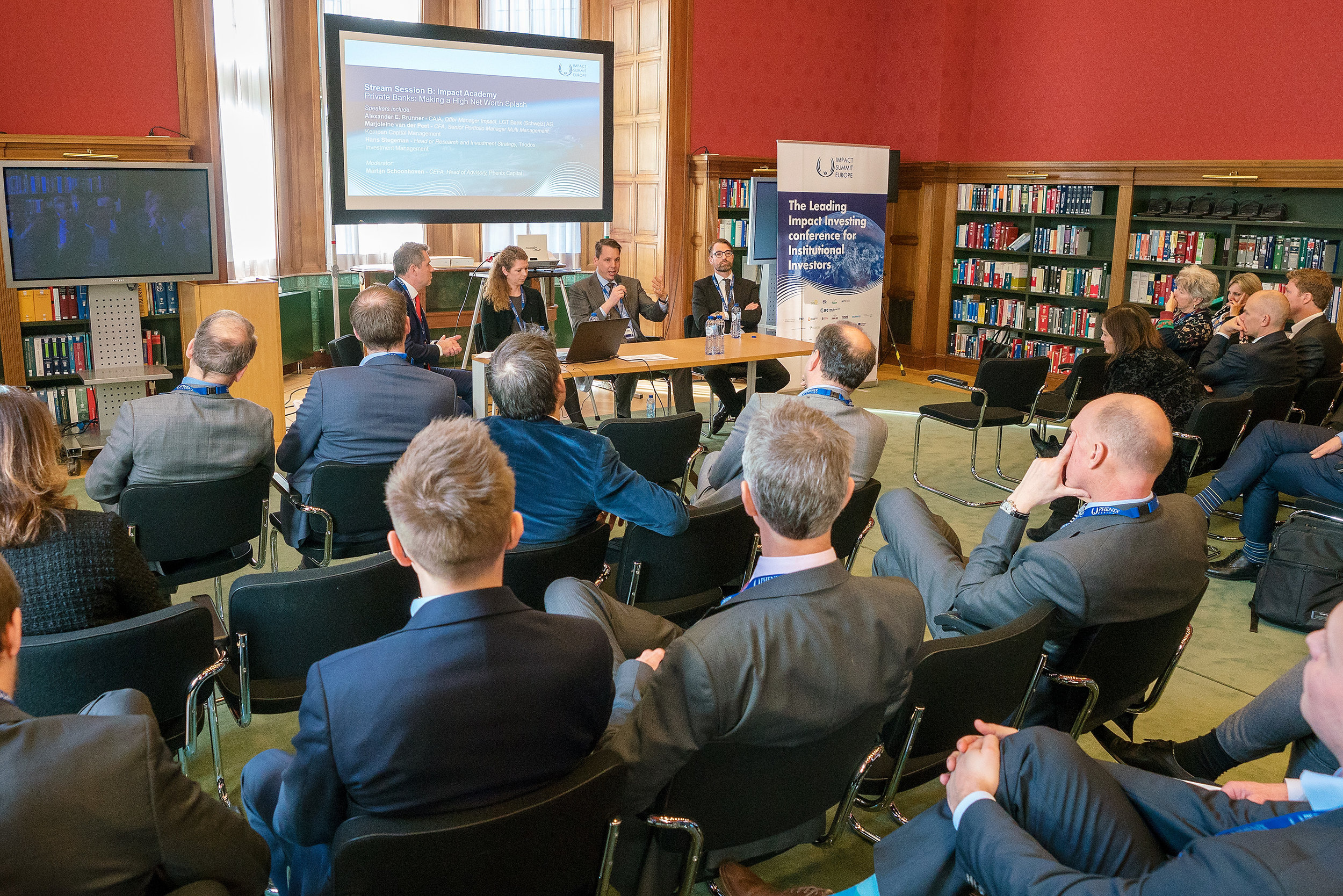
One of the key themes of Impact Summit Europe in 2018 were the emerging markets. In her opening speech, Sophie Robé referred to the fact that the business commission estimated last year that the market opportunity for contributing to the SDG was about $12 trillion in: food and agriculture; sustainable cities; energy and material; and health and wellbeing.
While these sectors are critical to delivering the Sustainable Development Goals, Robé pointed out that 90% of the market opportunities are in emerging markets. Day two saw Dr. Mark Mobius, a 40-year a veteran and a key figure in developing international policy for emerging markets, making a case for frontier and emerging markets.
One of the key concepts to mitigate risks in the emerging markets that came out of the panel High Noon: are the emerging markets the impact investors’ holy grail? was to work with Development Finance Institutions, such as the FMO and IFC, which have local networks, funding and experience.
The event also saw Kay Parlies, senior economist at the European Commission, Steve van Weede, managing director at Enclude Holding, Sylvia Wisniwski, managing director at Finance in Motion and Bosworth Monck, global head of client relations at the IFC Asset Management Company discuss over two hours how to create the ‘perfect’ emerging markets product.
Helping to moderate the discussion and hear the challenges from both the investor and product provider point of view, was Katherine Brown, head of sustainable and impact investing at the World Economic Forum and Dirk Meuleman, managing director at Phenix Capital.
Held under Chatham House Rules to ensure openness, this unique interactive product workshop produced a clearer understanding of the challenges to creating a scalable, appropriately priced impact investment product for the emerging markets. The outcome without attribution has been summarised in Closing the SDG GAP: The need for public/private collaboration.
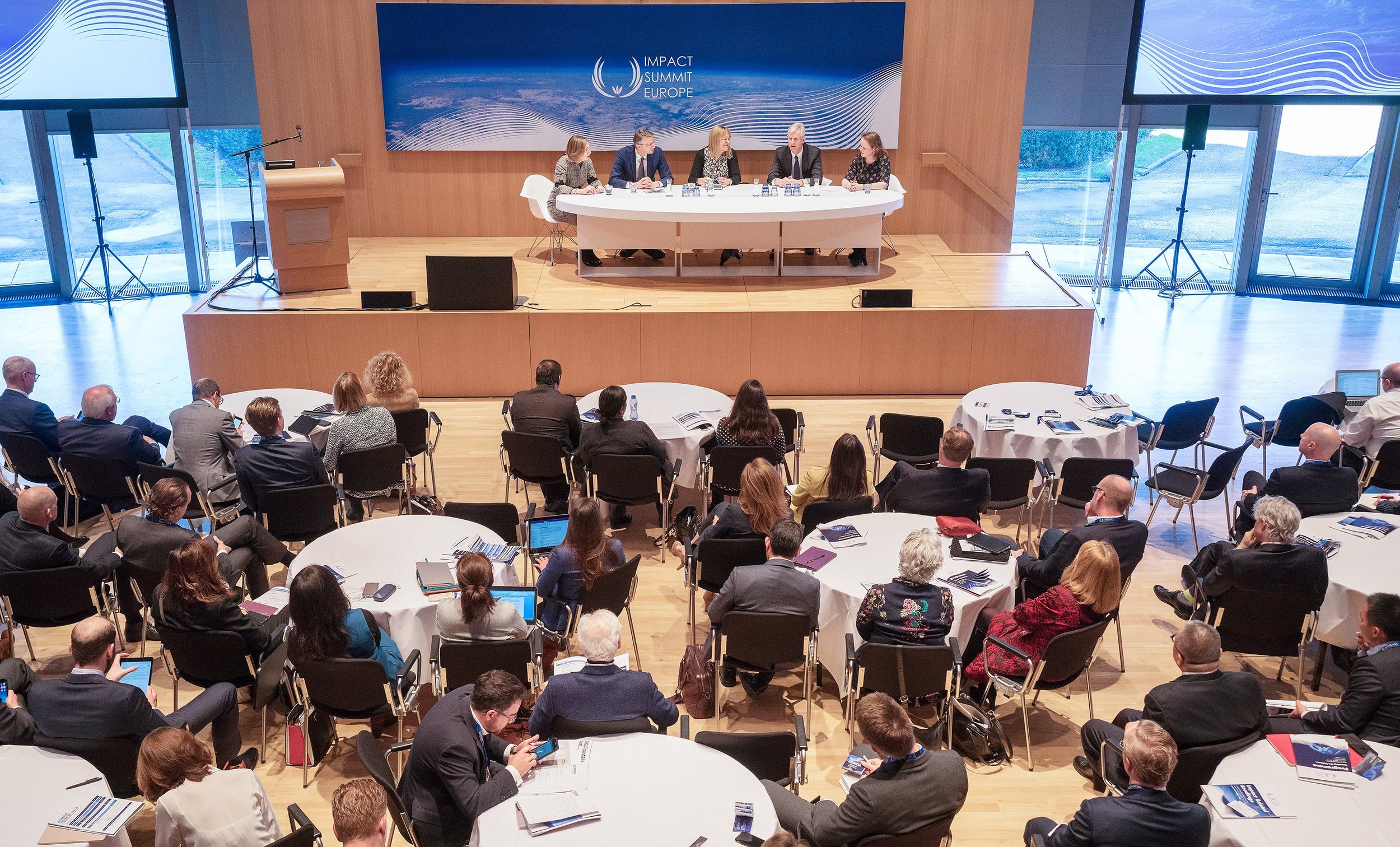
Investor panel discussion: Crossing the Rubicon
Without mobilising institutional investor capital, funding Sustainable Development Goals (SDGs) will not happen by 2030. The first panel of the event, also titled Crossing the Rubicon, started by taking the investor perspective on the challenges to making SDG-aligned allocations part of the mainstream investment management agenda.
Senior executives from Andra AP-fonden AP2, Pensioenfonds Metaal en Techniek (PMT), AXA Group, and De Nederlandsche Bank, moderated by Ruth Horowitz, eputy chief executive officer and chief operating officer of IFC Asset Management Company, lead sponsor of the 4th annual Impact Summit Europe 2018, explained how socially responsible investing is now a fiduciary duty and how implementing impact allows them to both achieve the returns and do good.
The investors agreed that the SDGs have given a new and broader framework and mindset for sustainable investing. In many cases existing investment themes such as affordable housing, energy or climate already fall under the SDGs, so transitioning conceptually has been easy. What several the panelists also agreed that the shift from negative screening to a more positive selection has started in earnest.
The core concern for the panel was making sure there are standardised metrics for measurement. For most institutional investors, particularly the public funds, it is important to show, transparently, that they are taking sustainability into account without compromising the returns. The second reason that the standards and measurement tools are essential is for risk management.
Measurement is such an important topic within impact investing because it helps to build credibility. For this reason, the Summit had several high-level sessions on the topic. On day one, Aine Kelly, investment consultant at the Impact Management Project and her panelists: Dinah Koehler, executive director, sustainable equities at UBS Asset Management; Piet Klop, senior adviser responsible investment at PGGM; and Mabinty Koromoa-Moore, engagement manager, IRIS & IMM, Global Impact Investing Network, helped to dispel some of the myths around measurement.
Unlike other conferences, Impact Summit Europe works with strategic partners including PGGM, MN, the GIIN, Principles for Responsible Investing, and the IFC Asset Management Company to make sure the event is more than just a theoretical discussion about the SDGs and impacting investing, but a forum to solve problems and remove the obstacles in the way of deploying sizeable allocations of institutional capital to earn financial returns while making positive social, economic and environmental impact.
For this reason, day two, saw two separate educational sessions run: one for beginners to impact measurement, and a second higher-level discussion for advanced practitioners. It seems, however, that having a precise percentage allocated to impact investing is less important than the objective of the assets allocated. In France, for example, there is Article 173 with energy transition to build a portfolio under plus 20C.
In this, Erick Decker, CEO a AXA Mediterranean and LATAM, AXA Group said it was more important to define how to change the portfolio to achieve under plus 20C that state a specific amount into renewables, for example.
As a regulator, Gisella van Vollenhoven, ivision director pension supervision, De Nederlandsche Bank, said explained that its role was more about bringing people together to create a platform such as the one created in the Netherlands, where sustainable finance meets the financial sector, with regulators, with the government to find ways to work together.
Separately, van Vollenhoven referred to the creation of the Central Banks and Supervisors Network for Greening the Financial System. At the first meeting of the held in Paris at the start of the year, DnB’s member of the Governing Board Frank Elderson was appointed as chair of the NGFS.
In terms of the emerging markets, the event’s key theme, Eva Halvarsso, hief executive officer at AP2 echoed the sentiments of the emerging market panel discussion moderated by Siegfried Leffler, director GIZ Representation Brussels. Namely the notion that it is important to also work with Development Finance Institutions such as the IFC and FMO with long-experience and boots on the ground that allows investors to look at the investment possibilities from another perspective.
To cater to the multiple levels of expertise, the event hosted the Impact Academy that covered topics such as Begin with the end in mind for the investor at the start of their journey, and Private Banks: Making a High Net Worth Splash for private banks catering to the needs of the wealthier private clients.
And because risk management is an essential component of the investment process there were also two sessions under the Risk Academy umbrella. The first, moderated by Wim Weijgertze, senior manager, Ernest & Young Actuarissen, covered IRR: Impact, Risk and Return – a Three dimensional approach for investment strategy with panelists Andreas Koester, head of global asset allocation from UBS CIO WM, and Don Gerritsen, Head of Benelux, Principles for Responsible Investment.
The second, took the case study of climate risk for a session titled From Risk to Opportunity: Can you capitalise on climate? Jacqueline Duiker, senior project manager responsible investment, VBDO moderated Jaqueline van Voorthuizen at PGB Pensioendiensten, Maarten Vleeschhouwer at de Nederlandsche Bank and Michael Lewis, head of sustainable finance research at Deutsche Asset Management, to give a fascinating insight into how risk management myopia might stop investors looking beyond risk towards the investment opportunity.
Climate was a big theme at the 2017 Impact Summit Europe, which hosted former U.S. Vice President and Nobel prize laureate Al Gore as keynote to discuss climate change. This year, in addition to looking at climate from a risk management perspective, both sessions Impact in fixed income: Beyond Green Bonds and How to build a climate proof portfolio were dedicated to various aspects of fixed income and green bonds.
The first addressed the issues that green bonds faced after The Climate Bond Initiative that social bonds are now facing. While the second panel looked at how building repeatable performance enhancing strategy involved more than just signing the Paris Accord on climate change.
One of the potentially most key areas where impact investing can make the biggest difference is in the listed equity market. Moderated by Dirk-Jan Verzuu, investment director at PGGM, From active engagement to impact: creating an SDG framework for listed equities highlighted how the SDGs could transform allocations to listed equities. Many investors, such as PFZW, were already allocating to SDG themes such as climate, health, food and water scarcity, long before the SDGs were developed.
Senior executives from NNIP, Royal DSM and Rabobank on the panel agreed that the SDGs force investors to a moralistic approach as to what a company is, what the purpose of the company is, and how financial returns should go hand in hand with socio-economic returns. The challenges of applying an SDG framework on a liquid asset class that has always been driven by shareholder value were also discussed.
Setting up an impact strategy from scratch is not for the feint hearted. Begin with the end in mind, was designed to help first-timers understand how to realise value, set the goals, an d consider which SDGs they might use in the portfolio. The speakers Frank Wagemans from Achmea Investment Management, Jonathan Dean from Axa Investment Managers and Lydia Guett of Cambridge Associates also covered how to pick the right funds and covered the discussion around measuring and monitoring risk.
GIIN’s case studies: Initiative for Institutional Impact Investment was moderated by Yvonne Bakkum, director of FMO Investment Management. In the session titled How we established an impact strategy within our organization Harald Walkate, global head of responsible investment at Aegon Asset Management and Tim Macready, chief investment officer of Christian Super in Australia discussed the hurdles they overcame to get to the point they are today; another useful session for an investor starting out on the journey.
For advanced SDG investors, each year Impact Summit Europe also hosts deep dives into certain SDGs. This year the SDG Focus were: #5 Gender Equality: Looking through the gender lens, moderated by Dimple Sahni, of Anthos Amsterdam; #11 Sustainable Cities and Communities, moderated by Anne-Marie Hitipeuw-Gribnau, chief resilience officer of City of The Hague; and #13 Climate Action: Impact Investor’s Guide to Restoring Balance, moderated by Aglaé Touchard-Le Drian of the European Investment Bank.
With all the focus on the emerging markets, some investors simply want to allocate and make an impact closer to home. For these investors Investing begins at home, provided a useful insight into how Ircantec in France and Hesta in Australia allocate to impact locally. Caroline Le Meaux of Ircantec and Robert Fowler of Hesta shared their experiences in the session hosted by Evita Zanuso of Big Society Capital.
Phenix Capital’s aim through the Impact Summit series of events—the next one will be in San Francisco on 11 September 2018—and InvestorConnect—some 30 pre-selected impact funds presenting to 80+ investors—is to mobilise their own army of impact investors to cross the ESG Rubicon to impact investing so this become the new norm for sustainable investing. The next Impact Summit Europe will be held in at the Peace Palace, The Hague 2-3 April 2019.
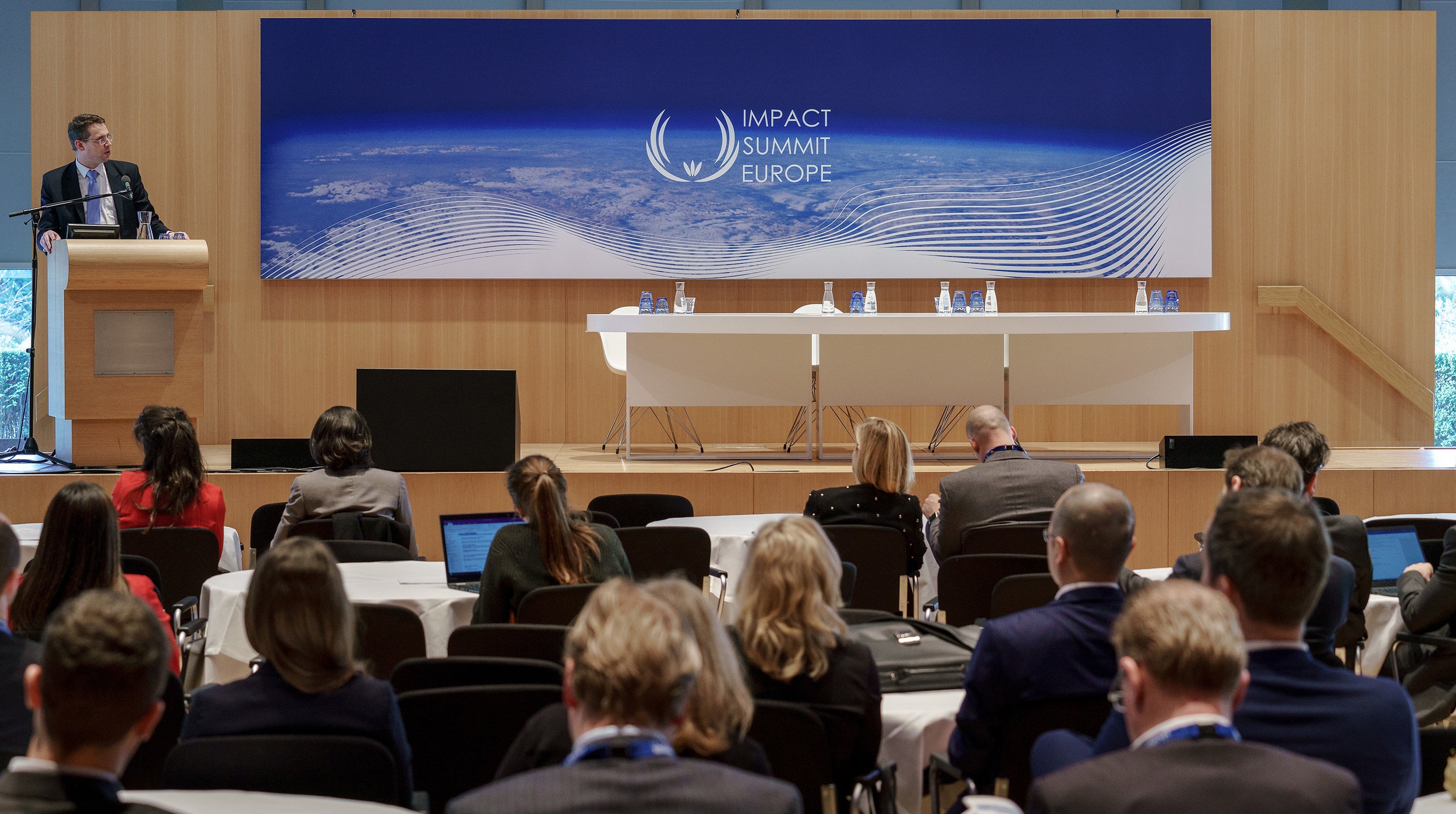
Dirk Meuleman | Managing Director, Phenix Capital

Authors: Bruno Besek; Dirk Meuleman, CFA, CAIA; Sophie Robé, CFA, PhD
.png)
Amsterdam, May 27, 2021: Phenix Capital has today released its Impact Report: Deep Dive on Private Debt Funds. The report finds that between 2015 and...
.png)
Amsterdam, June 24, 2021: Phenix Capital Group has today released its Asset Owner Trend Report: Looking Back at 6 Years of InvestorConnect. The...